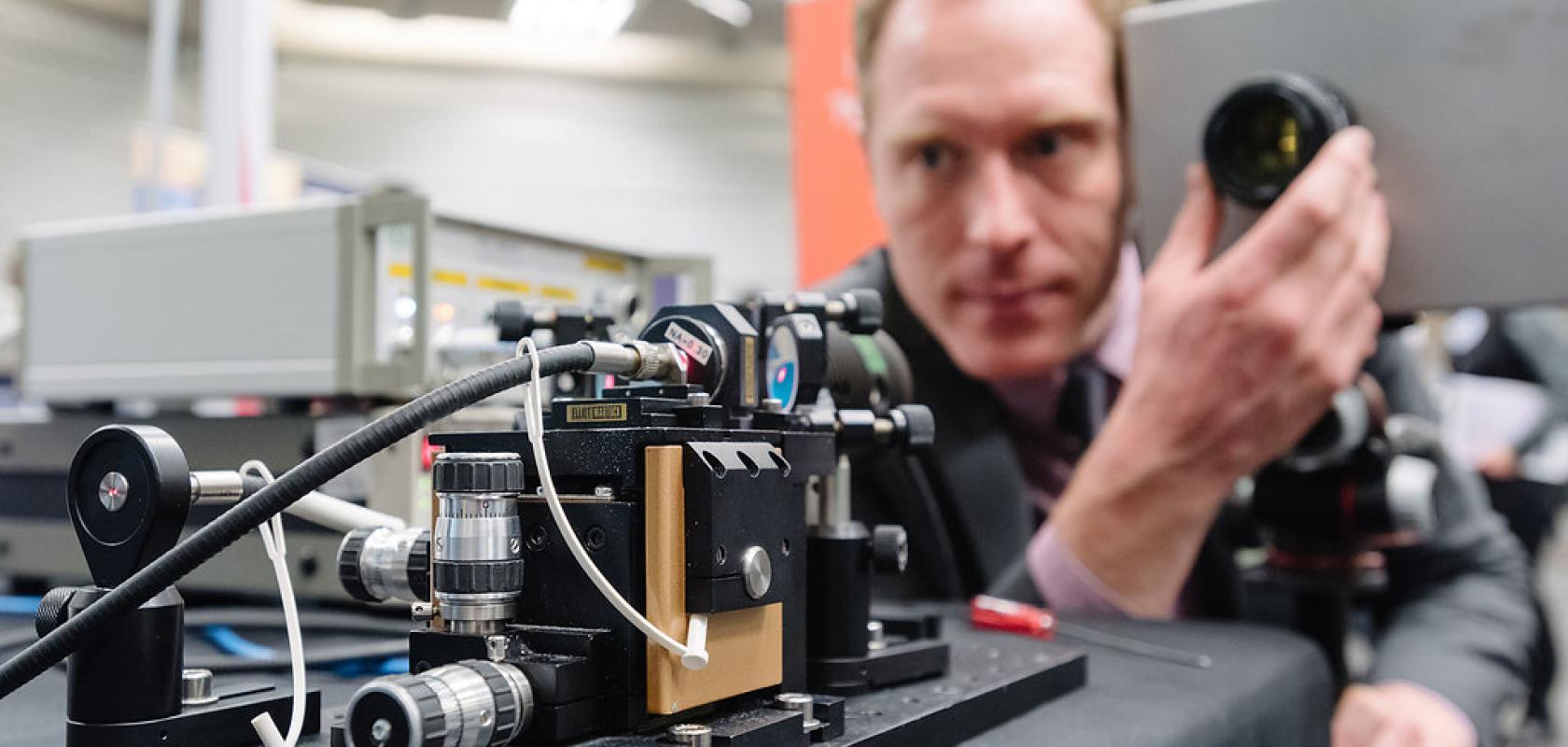Work from the first three years of the £270 million UK National Quantum Technology programme, including that from the quantum imaging hub, was showcased at an event in London on 22 November.
Twenty five universities and 50 companies are now involved in the programme, with the total investment exceeding £350 million.
The event was held as the European Commission begins its €1 billion quantum flagship programme, set to run from 2018 to 2028. The US, China, Singapore and Australia also have their own programmes, as have companies including Google which is investing heavily in quantum computing.
Companies and researchers that are part of in the quantum imaging hub, Quantic, were displaying a range of technologies, all based on photon counting timing. M Squared Lasers was showing its single pixel infrared camera for imaging gases, which the company said, of all its projects, was the technology closest to commercialisation.
Also on display was: a camera developed by Lockheed Martin, among other partners, that can see through scattering media, such as snow and fog; a photon counting silicon chip designed by the University of Edinburgh, fabricated by STMicroelectronics, and incorporated in a new range of spectrometers by Horiba for time resolved luminescence studies; a portable light source of quantum coupled and correlated photons from the University of Bristol, which is being used for covert imaging studies; and a camera from Thales that can see around corners, with applications in defence and security.
Quantum technologies was one of the big trends seen at Laser World of Photonics earlier in the year where a number of Quantic demonstrators were on display
Speaking at the event, William Alexander, technical director at Thales, said that Quantic was fantastic for breaking down the barrier between academia and industry, and that without Quantic Thales wouldn’t have known about the work being done at Heriot-Watt University developing single-photon avalanche diode (SPAD) detectors that Thales use in its camera.
In an article for Electro Optics, Dr Graeme Malcolm, CEO and co-founder of M Squared Lasers, wrote: ‘The UK has always competed globally in science, but bridging the gap to industry and boosting the UK’s intellectual property and exports requires an important, joined-up strategy. The UK National Quantum Technology programme is a step in the right direction for the UK – but the key to keeping the UK and Europe on the map is to continue the investments into R&D. With quantum science expected to become a £100 billion industry, it’s vital that the UK acts now in order to remain competitive.’
The day in London also saw discussions held about building a supply chain of photonics components, as well as training engineers to test and make components, both of which need investment to turn quantum technology into an industry.
Image credit: Dan Tsantilis and EPSRC


